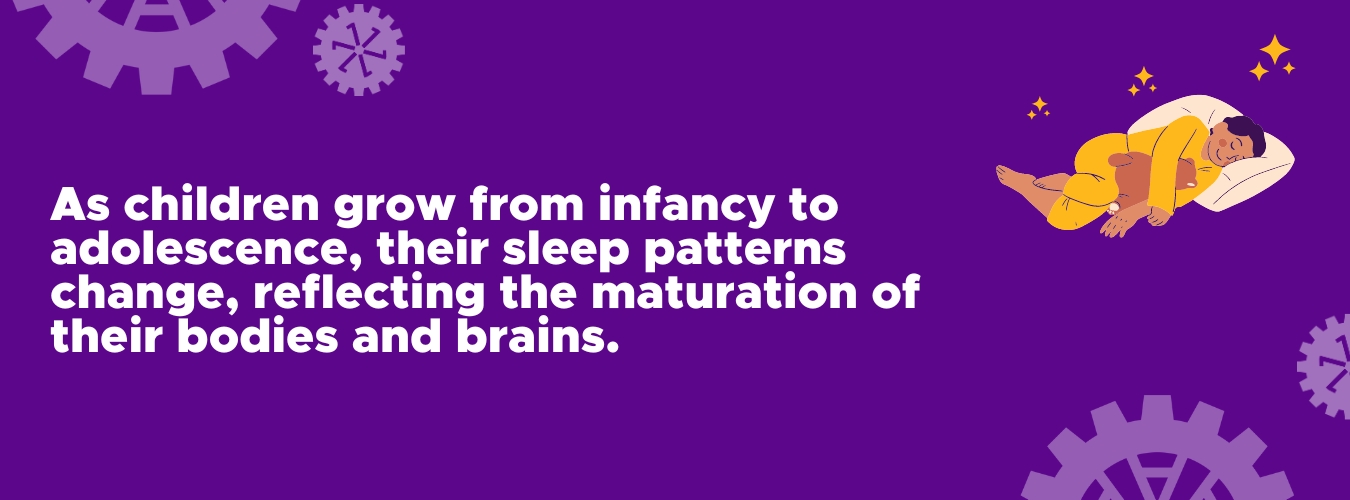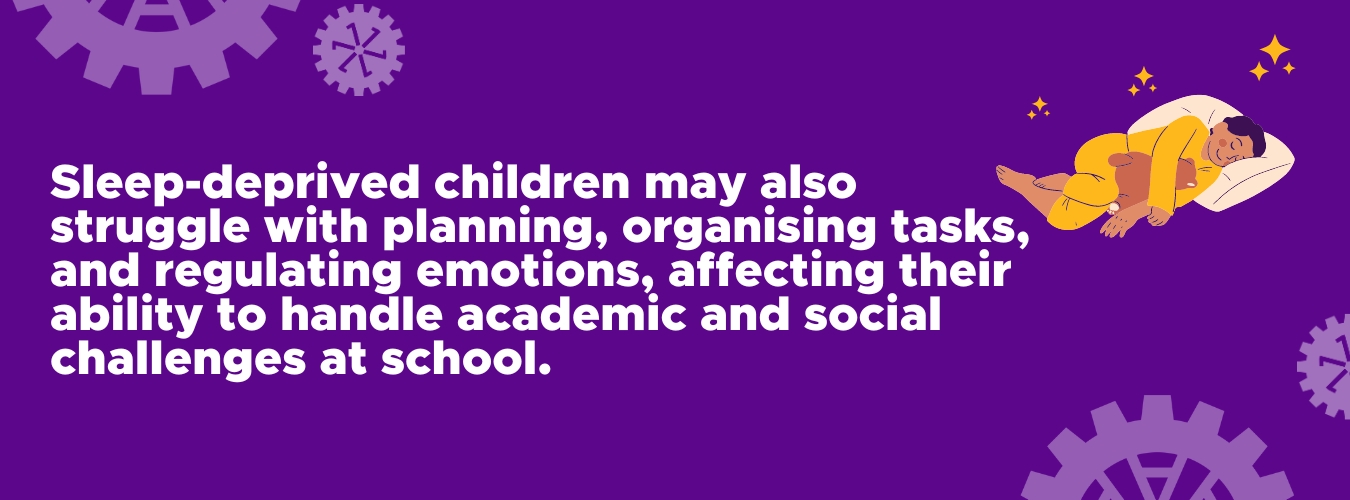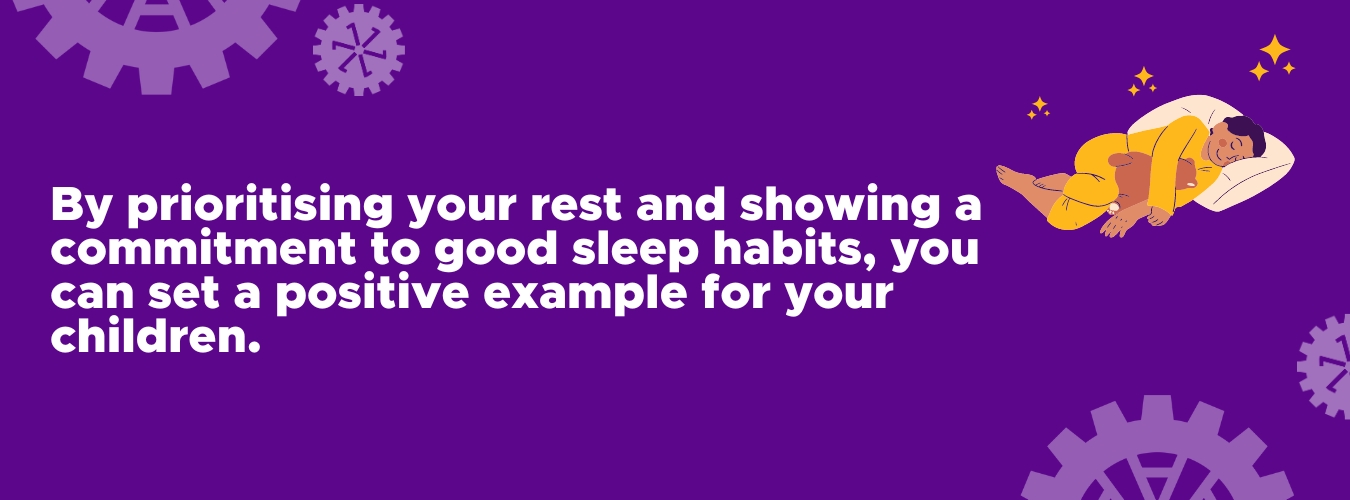The Impact of Sleep on Learning: How Quality Rest Boosts Academic Performance

In the bustling world of childhood, brimming with laughter, learning, and growth, one crucial aspect often gets overlooked: sleep.
Many view sleep as merely a break from the day's activities, a time to rest and recharge. However, sleep is far more significant; it’s a cornerstone of a child’s development, profoundly influencing their physical, cognitive, and emotional well-being. In this blog, we’ll delve into how quality sleep supports healthy development and lays the foundation for academic success.

Understanding Sleep for Children
Sleep is a complex and dynamic process essential for a child’s well-being and growth. As children progress from infancy to adolescence, their sleep patterns evolve, mirroring the maturation of their bodies and brains. It’s important to understand the intricate nature of sleep to fully appreciate its impact on children’s health and development.
Sleep isn’t merely a passive state but a journey through various stages, each serving a crucial function. These stages include non-rapid eye movement (NREM) and rapid eye movement (REM) sleep, characterised by unique brain activity patterns and physiological changes. During NREM sleep, the body undergoes restorative processes like tissue repair and growth hormone release, while REM sleep supports cognitive functions such as memory consolidation and emotional regulation.
The Brain, Learning, and Development
A child’s brain is remarkably active during sleep, engaging in processes that support learning and cognitive development. During REM sleep, the brain consolidates new information, solidifying memories and preparing for future learning. This stage also plays a crucial role in synaptic pruning, refining neural connections, and developing brain function.
Quality sleep acts as a catalyst for healthy development, providing the foundation for all other aspects of growth. Physically, sleep facilitates the release of growth hormones, supporting the maturation of muscles, bones, and organs. Mentally, sleep enhances cognitive function, improving memory consolidation, problem-solving abilities, and creative thinking. Emotionally, sleep fosters resilience and emotional regulation, helping children navigate daily challenges with greater ease.

Impact of Sleep on Academic Performance
The connection between sleep quality and academic performance is clear. Research shows that children who get plenty of high-quality sleep have better attention, problem-solving skills, and academic performance compared to their sleep-deprived peers. When children don’t get enough sleep, it can be hard for them to focus, take in new information, and remember what they’ve learned, which can lead to lower grades and difficulty mastering school subjects.
Children who don’t get enough sleep might also find it tough to plan, organise tasks, and manage their emotions, which can make handling academic and social challenges at school harder. By encouraging healthy sleep habits early on, parents can help their children succeed both in and out of the classroom. Establishing consistent bedtime routines, creating a comfortable sleep environment, and setting age-appropriate sleep schedules are important steps in promoting good sleep habits.
Sleep Duration
The amount of sleep a child needs varies by age. According to the Academy of Sleep Medicine:
- Infants (4-12 months): 12-16 hours per day, including naps
- Toddlers (1-2 years): 11-14 hours per day
- Preschoolers (3-5 years): 10-13 hours per day
- School-aged children (6-12 years): 9-12 hours per day
- Adolescents (13-18 years): 8-10 hours per day
Tips for Promoting Healthy Sleep Habits in Children
Here are some practical steps parents can take to support their child’s sleep health:
- Establish a consistent bedtime routine: Activities like reading a bedtime story, taking a warm bath, or practising relaxation techniques can signal to children that it’s time to wind down.
- Create a sleep-friendly environment: Ensure the sleep space is dark, quiet, and comfortable, free from distractions that might disrupt rest.
- Limit screen time before bed: Avoid stimulating activities before bedtime to help children transition into sleep more easily and improve sleep quality.
Leading by Example
Parents can also model healthy sleep habits themselves. Children often mimic their parents’ behaviour, so establishing a bedtime routine for the whole family can reinforce the importance of sleep. By prioritising your own rest and showing a commitment to good sleep habits, you can set a positive example for your children.

The Importance of Sleep for Development and Success
The impact of sleep on children’s development and academic success cannot be overstated. By recognising the importance of quality rest for cognitive function, emotional regulation, and overall well-being, parents can help their children thrive in all aspects of life.
How NumberWorks’nWords Can Help
At NumberWorks’nWords, we understand the importance of academic success. Our personalised tuition boosts confidence and results, complementing schoolwork and following the curriculum to support students in achieving their academic goals. To learn more about how NumberWorks’nWords tuition can help your child, get in touch with our team or book a free assessment and introductory lesson today.



